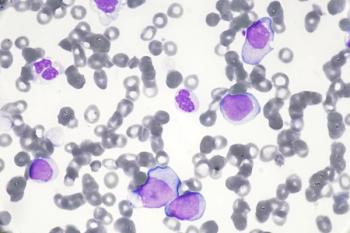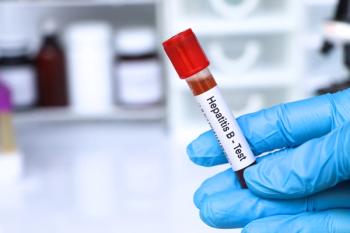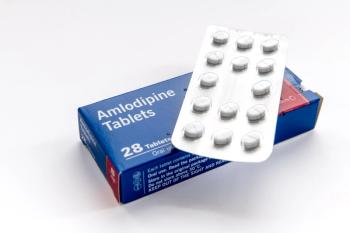
The label changes to buprenorphine extended-release injections can increase convenience and adherence for patients with moderate to severe opioid use disorder.

The label changes to buprenorphine extended-release injections can increase convenience and adherence for patients with moderate to severe opioid use disorder.

The drug solidifies its place as a first-line treatment option in AML.

Phil Vigeant shares benefits and considerations of plant-based protein powders, highlighting the pharmacist's role in recommending quality plant-based protein powders.

The authors note that this lack of inclusion can leave important safety and efficacy questions unanswered.

The designation is supported by pooled data from 4 clinical trials.

Nadofaragene firadenovec led to most patients with Bacillus Calmette-Guérin-unresponsive non-muscle invasive bladder cancer (NMIBC) experiencing a complete response (CR) at 3 months.

Levonorgestrel-releasing intrauterine devices were not found to increase women’s risks of these conditions.

Lawsuits were initiated against the pharmacy and prescriber.

According to Pranav Garimella, pharmacists are essential in counseling patients with CKD on the appropriate use of semaglutide.

The FDA’s accelerated approval of lifileucel (Amtagvi; Iovance Biotherapeutics) marks a major milestone in immunotherapy for metastatic melanoma, building on decades of research in tumor-infiltrating lymphocyte therapy.

Immunotherapy pioneer James P. Allison, PhD, revolutionized cancer treatment by discovering immune checkpoint blockade, leading to significant advances in survival rates and ongoing efforts to optimize immuno-oncology strategies.

Advancements in neoantigen vaccines and immunotherapy are transforming cancer treatment by leveraging genomic sequencing to overcome tumor heterogeneity and therapeutic resistance.

The FDA-approved treatment did not cause as many adverse events as immunotherapy when treating patients with multi-food allergy.

Although more research is needed in pediatric patients, biosimilars could improve treatment access and reduce costs.

Gaps in education about biosimilars, particularly among pharmacists, patients, and prescribers, are a significant barrier to wider adoption.

Tanshinlactone is an active ingredient that is commonly used in Chinese herbal medicine.

The test results are available in as little as 20 minutes.

BRAF V600E inhibitors show improved outcomes in relapsed/refractory hairy cell leukemia.

The long-term durability of response will be evaluated in the B-Sure trial (NCT04954859), which will enroll patients with hepatitis B virus (HBV) from B-Together (NCT04676724).


Curbing RSV and its complications can reduce health care costs associated with its treatment.

Etranacogene dezaparvovec offers a long-term, cost-effective solution for hemophilia B by providing sustained factor IX expression but requires careful patient selection and post-infusion liver monitoring.

Currently, the agent is undergoing evaluation in a phase 2 clinical trial to determine its safety and efficacy.

Pharmacists’ expanded role comes at a cost, as they must now navigate conflicting laws, ethical dilemmas, and professional expectations while maintaining the integrity of their practice.

Melody Smith, MD, MS, discusses how microbiome modulation may influence CAR T-cell therapy toxicity and outcomes, highlighting potential future interventions and clinical integration challenges.

In a study of 5 different drugs, amlodipine was the only one to reduce hyperactivity in patients with attention-deficit hyperactivity disorder (ADHD).

The AACR Immunotherapy Conference 2025 will provide pharmacists with the opportunity to engage with cutting-edge cancer immunotherapy research, explore advancements in treatments, such as immune checkpoint inhibitors and CAR T-cell therapy, and connect with key leaders in the field.

The approach targets cancer glucose and fatty acid metabolism, which is essential for cancer cell growth.

Melody Smith, MD, MS, discusses how the intestinal microbiome influences CAR T-cell therapy outcomes, highlighting the negative impact of certain antibiotics and the potential role of dietary interventions in improving treatment efficacy.

SkinTE could aid Wagner grade 1 diabetic foot ulcers by regenerating and activating the tissues surrounding the wound to heal it completely.